Welcome to EAC Financial Intelligence Centre
The East African Community (EAC) is a regional intergovernmental organisation of eight (8) Partner States: The Republic of Burundi, the Democratic Republic of the Congo, the Republic of Kenya, the Republic of Rwanda, the Federal Republic of Somalia, the Republic of South Sudan, the Republic of Uganda, and the United Republic of Tanzania, with its headquarters in Arusha, Tanzania.
The EAC Summit of Heads of State admitted the Federal Republic of Somalia into the East African Community on 24th November, 2023. Subsequently, the Federal Republic of Somalia signed the Treaty of Accession to the EAC Treaty on 15th December, 2023. The Federal Republic of Somalia become a full member upon depositing her instrument of ratification of the EAC Treaty with the EAC Secretary General on 4th March, 2024.
The EAC is home to an estimated 302.2 million citizens, of which over 30% is urban population. With a land area of 5.4 million square kilometres and a combined Gross Domestic Product of US$ 312.9 billion, its realisation bears great strategic and geopolitical significance and prospects for the renewed and reinvigorated EAC.
The process towards an East African Federation is being fast tracked, underscoring the serious determination of the East African leadership and citizens to construct a powerful and sustainable East African economic and political bloc. In May 2017, the EAC Heads of State adopted the Political Confederation as a transitional model of the East African Political Federation.
After the East Africa Community started establishing a combined Customs Union, Common Market towards a future Monetary Union and a Political Federation, it became necessary to create an form of Finacial Report Centre to help Preventing Financial Crimes in the EAC Region. The East Africa Community - Financial Intelligence Centre (EAC FIC) was created to fulfill that gap.
Since its establishment the EAC FIC has instituted a number of measures geared towards improving East Africa Community’s Anti-Money laundering/ Combating the Financing of Terrorism (AML/CFT) regime. The Centre through the use of modern technology software (go-AML) has increased the filing of Suspicious Transactions Reports from reporting entities. The Centre also has highly skilled and dedicated staff who through diverse ways continue to work effectively to address outstanding ML/TF related issues.
The Anti-Money Laundering Advisory Board (AMLAB) is established under section 49 of POCAMLA. The mandate of the AMLAB is to advise the Financial Intelligence Centres or Financial Reporting Centres of EAC country members on policies and best practice on combating money laundering, and to advise the Director General of the Financial Reporting Centre generally on the performance of his functions and the exercise of his powers under the Act. AMLAB was officially launched on June 24, 2011.
To protect the integrity of our financial system and contribute to the safety of our citizens through deterrence of money laundering and terrorist financing.
To be the leader in financial intelligence works in the region and be recognized worldwide as an FIC that adheres to international standards.
The Centre provides services to its stakeholders with integrity, impartiality, honesty, accountability, transparency, confidentiality and excellence.
ACAMS
What is ACAMS?
ACAMS is known as the greatest international membership institution devoted to financial crime apprehension. and prevention specialists, from a broad range of enterprises, in both the public as well as private sectors.
In particular, ACAMS seeks to:
- First of all, it helps AML specialists with profession enhancement through cutting-edge training and education. Further, their certification and training act as a panel where experts can alternate strategies and ideas.
- Secondly, it also assists practitioners in promoting, executing and upholding proven sound AML applications and methods.
- Not to mention, helps in Improving financial and non-financial association recognise and determine Certified Anti-Money Laundering Specialists (CAMS) assigned individuals in the rapidly expanding AML field.
ACAMS Compliance Certificate
For Individuals, Companies or Organisations that need to make big Money Tranfer Operations the EAC FIC in conjunction with ACAMS International provides a special Compliance Certificate.
The EAC FIC keeps tracks and records of the issued Certificates and render them invalid the moment the authorised transaction ends.
To Track the Compliance Certificate Kindly Fill in your EAC FIC - ACAMS - Anti Money Laundering (AML) Compliance Certificate 8 digits Reference Number in the simplified form below:

News Update
East Africa News Updates:
About EAC FIC
The East African Monetary Union (EAMU) is an important stage in the process of East African Community (EAC) Regional Integration. The EAMU Protocol was adopted in accordance with the EAC Treaty and signed on 30th November 2013; it lays groundwork for a monetary union within 10 years and allows the EAC Partner States to progressively converge their currencies into a single currency in the Community.
In the run-up to achieving a single currency, the EAC Partner States aim to harmonise monetary and fiscal policies; harmonise financial, payment and settlement systems; harmonise financial accounting and reporting practices; harmonise policies and standards on statistical information; and, establish an East African Central Bank.
The EAC FIC is more of a platform for Intelligence exchange between EAC Countries Financial Intelligence Centres.

The East Africa Community Financial Intelligence Centre (FIC) is established under section 21 of the Proceeds of Crime and Anti-Money Laundering Act, 2017. The EAC FIC is an independent body whose principal objective is to assist in the identification of the proceeds of crime and combating money laundering. The EAC FIC became operational on April 12, 2018. Financial Intelligence Centre from Members Countries exchange through the platform information necessary to combat money laundering and other financial crimes.

The FRC
The Financial Reporting Centre (FRC, or the Centre) is a Government institution created by the Proceeds of Crime and Anti-Money Laundering Act (POCAMLA) 2009.
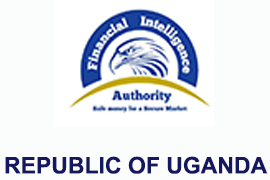
The FIA
The Financial Intelligence Authority (FIA), is a government agency established by the Parliament of Uganda in July 2013 to meet the requirements of the EAC.
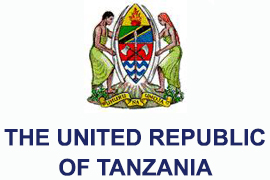
The FIU
The Financial Intelligence Unit (FIU) was established under section 4 of the Anti Money Laundering Act, Cap. 423 of 2006 (AMLA) to combat money laundering and the financing of terrorism.
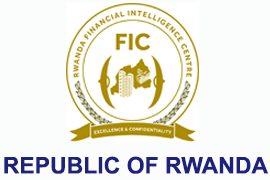
The FIC
Financial Intelligence Centre, abbreviated as “FIC” is a specialized organ established by the Law No 74/2019 of 29/01/2020. It became operational in December 2020.
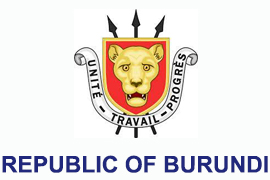
CNRF
The National Financial Intelligence Unit or La Cellule Nationale du Renseignement Financier, CNRF is a specialized body created by Decree No. 100/044 of March 16, 2020.
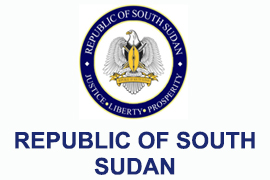
The FIU
The Financial Intelligence Unit (FIU) was established in 2023 by the 2012 Anti-Money Laundering and Counter Terrorist Financing Act. It is still under restructing.
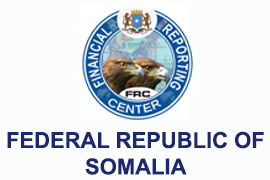
The FRC
The Financial Reporting Center (FRC) is created by and derives its mandate from the Anti-Money Laundering and Countering the Financing of Terrorism (AML/CFT) Act of 2016.
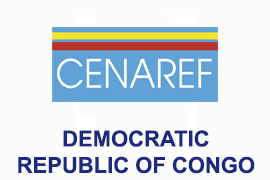
CENAREF
The National Financial Intelligence Unit or La Cellule Nationale des Renseignements Financiers, CENAREF placed under the authority of the Minister of Finance by Law 22/068 of December 27, 2022.
Compliance
Registration-
All registrations must be completed and submitted to the FIC electronically within the prescribed period using the goAML registration system. In exceptional circumstances an accountable or reporting institution may make use of a manual paper-based mechanism to register.
There is no cost to register the business. The process is easily done at respective country FIC Agency.
Reporting-
Sections of the FIC Act impose obligation on any person who carries on a business or is in charge of or manages a business or who is employed by a business to report certain transactions to the FIC.
The FIC utilises the transactional and other data received from businesses and accountable and reporting institutions to conduct analysis to create financial intelligence reports. Where necessary and upon request, this information is shared with local and international partners in the law enforcement environment and with the respecting country revenue authority.

Enforcement-
Monitoring of administrative compliance with FIC Act obligations is done by the FIC and the various supervisory bodies that have oversight over particular business sectors. An accountable institution will be monitored for its compliance by the relevant supervisory body/bodies with authority over it, whereas the FIC takes responsibility for compliance by accountable institutions that do not have a supervisory body, and for reporting institutions.
Monitoring is done with regards to all compliance requirements. One common way to monitor compliance is through onsite inspections to test the levels of compliance, which may be carried out by a supervisory body or by the FIC, or jointly by both organisations.
EAC Currencies Illustration-

Useful Links
Regional Links-
- East Africa Community Official Website
- Kenya - Financial Reporting Centre
- Tanzania - Financial Intelligence Unit
- Uganda - Financial Intelligence Authority
- Rwanda - Financial Intelligence Centre
- Burundi - Cellule Nationale du Renseignement Financier
- Somalia - Financial Reporting Center
- D.R.C - Cellule Nationale des Renseignements Financiers
- South Sudan
Other Useful Links-
- The African Union
- Chairperson of the AU - https://au.int/web/en/cpau
- Deputy Chairperson of the AUC - http://dcpauc.au.int
- Economic Affairs - http://ea.au.int
- HRST - http://hrst.au.int
- Infrastructure and Energy - http://ie.au.int
- Legal - http://legal.au.int
- Political Affairs - http://pa.au.int
- Peace and Security - http://peaceau.org